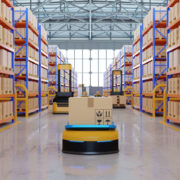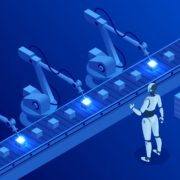Revolutionizing the Future: Exploring the Latest Breakthroughs in Technology
I. Introduction
In a world marked by constant innovation, technological breakthroughs play a pivotal role in shaping our future. As we navigate the dynamic landscape of advancements, it becomes imperative to delve into the latest breakthroughs that are revolutionizing the way we live, work, and interact.
II. Artificial Intelligence
Understanding AI Advancements
Artificial Intelligence (AI) stands at the forefront of technological progress. From machine learning to natural language processing, AI is evolving rapidly, transforming industries and daily life. The implications of this progress are vast, yet ethical considerations linger.
Impact on Industries
Industries worldwide are witnessing the transformative power of AI. Automation, predictive analytics, and personalized experiences are becoming the norm, enhancing efficiency and innovation. However, questions about the ethical use of AI persist.
III. Quantum Computing
Unraveling the Potential
Quantum computing, with its ability to process vast amounts of data at unprecedented speeds, holds immense promise. This section explores the potential applications of quantum computing and the groundbreaking changes it could bring to various fields.
Applications and Implications
The applications of quantum computing extend from cryptography to optimization problems, revolutionizing industries such as finance and healthcare. However, the implications of this technology also raise concerns about data security and privacy.
IV. Biotechnology Innovations
Genetic Engineering Developments
Biotechnology is reshaping the landscape of medicine and agriculture. Advances in genetic engineering, CRISPR technology, and gene therapy are opening new possibilities for treating diseases and enhancing crop yields.
Medical Breakthroughs
In the medical field, biotechnological innovations are driving breakthroughs in personalized medicine, targeted therapies, and organ transplantation. The ethical considerations surrounding genetic manipulation are central to these developments.
V. Internet of Things (IoT)
Connecting the World
The Internet of Things (IoT) is connecting devices, creating a network that enhances communication and efficiency. This section explores the applications of IoT in various sectors, from smart homes to industrial settings.
Smart Cities and Homes
The concept of smart cities, where IoT devices enable efficient urban living, is becoming a reality. Additionally, smart homes equipped with IoT devices offer convenience and energy efficiency. However, concerns about data security and privacy arise.
VI. 5G Technology
Enhancing Connectivity
The rollout of 5G technology is revolutionizing connectivity, providing faster internet speeds and enabling the seamless integration of devices. This section delves into the impact of 5G on communication and its transformative potential.
Transforming Communication
With 5G, communication experiences unprecedented speed and reliability. The technology’s role in transforming industries, from healthcare to entertainment, is examined. However, discussions about the potential health effects of increased electromagnetic radiation persist.
VII. Robotics and Automation
Robotics in Various Industries
The integration of robotics and automation is reshaping industries, increasing efficiency and precision. From manufacturing to healthcare, robots are becoming indispensable. Yet, questions about job displacement and ethical use of autonomous systems remain.
Future Job Landscape
As automation becomes more prevalent, the job landscape is evolving. This section explores the potential shifts in employment patterns and the need for reskilling to adapt to the changing technological landscape.
VIII. Augmented and Virtual Reality
Immersive Experiences
Augmented Reality (AR) and Virtual Reality (VR) are creating immersive experiences across various sectors. From gaming to education, these technologies offer new ways to interact with the digital world.
Practical Applications
Beyond entertainment, AR and VR have practical applications in fields such as healthcare, education, and training. The challenges of widespread adoption and the potential for societal impact are discussed.
IX. Renewable Energy Solutions
Sustainable Innovations
Technological breakthroughs in renewable energy are crucial for addressing climate change. This section explores innovations in solar, wind, and other renewable sources, emphasizing the importance of sustainable energy solutions.
Addressing Climate Change
As the world faces the consequences of climate change, the role of technology in providing sustainable solutions is paramount. The challenges and opportunities in transitioning to renewable energy sources are examined.
X. Blockchain Technology
Decentralized Systems
Blockchain technology, known for its decentralized and transparent nature, is disrupting industries such as finance, supply chain, and healthcare. This section explores the fundamentals of blockchain and its potential to reshape traditional systems.
Impact on Finance and Beyond
In the financial sector, blockchain is revolutionizing transactions, making them secure and transparent. The broader implications of decentralized systems in other industries and potential challenges are discussed.
XI. Space Exploration Technologies
Advancements in Space Travel
Technological breakthroughs in space exploration are propelling humanity toward new frontiers. This section explores the latest advancements in space travel, from reusable rockets to ambitious missions to Mars.
Future Possibilities
As technology enables further exploration of space, the possibilities for scientific discovery and interplanetary colonization expand. The ethical considerations of space exploration and its impact on human existence are explored.
XII. Biocomputing
Merging Biology and Technology
Biocomputing represents the convergence of biology and technology. This section delves into how biological systems are being harnessed for computational purposes, opening new avenues for data processing.
Potential Breakthroughs
The potential applications of biocomputing range from medical diagnostics to environmental monitoring. The challenges and ethical considerations of manipulating biological processes for computing purposes are discussed.
XIII. Edge Computing
Enhancing Processing Speed
Edge computing, by bringing computation closer to the data source, enhances processing speed and efficiency. This section explores the applications of edge computing in real-time scenarios, from autonomous vehicles to smart infrastructure.
Applications in Real-time
The real-time applications of edge computing are crucial for industries that require instant data processing. The challenges in implementing edge computing and its role in the era of IoT are discussed.
XIV. Nanotechnology
Manipulating Atoms and Molecules
Nanotechnology involves manipulating matter at the nanoscale, opening up possibilities in medicine, electronics, and materials science. This section explores the foundational concepts of nanotechnology and its diverse applications.
Applications in Medicine and Electronics
In medicine, nanotechnology is revolutionizing drug delivery and diagnostics. The potential for nanoscale materials in electronics and other industries is discussed, along with the ethical considerations of manipulating matter at such a small scale.
XV. Future Challenges and Considerations
Ethical Concerns
As technology progresses, ethical considerations become increasingly important. This section addresses the ethical dilemmas posed by emerging technologies and the need for responsible innovation.
Balancing Progress and Risks
Balancing technological progress with potential risks requires careful consideration. The article explores the importance of ethical frameworks and regulatory measures to ensure responsible development and use of technology.
XVI. Conclusion
Reflecting on the Technological Landscape
In conclusion, the article reflects on the multifaceted landscape of technological breakthroughs. The interconnected nature of advancements poses challenges and opportunities that shape the trajectory of our future.
Anticipating Future Innovations
As we stand on the brink of a technological revolution, anticipating future innovations is both exciting and daunting. The continuous pursuit of knowledge and responsible development will determine the positive impact of these breakthroughs on society.
FAQs
- Are these technological breakthroughs accessible to everyone?
- While some technologies are becoming more accessible, challenges such as cost and infrastructure limitations still exist.
- What role does ethical consideration play in the development of these technologies?
- Ethical considerations are crucial in ensuring that technological advancements are used responsibly and benefit society as a whole.
- How can individuals prepare for the changing job landscape due to automation?
- Continuous learning and upskilling are essential for individuals to adapt to the evolving job landscape.
- What are the potential risks associated with quantum computing?
- Quantum computing poses challenges to data security, as current encryption methods may become vulnerable.
- How can society address the environmental impact of technological advancements?
- Sustainable practices and responsible consumption are key to minimizing the environmental impact of technological progress.
















